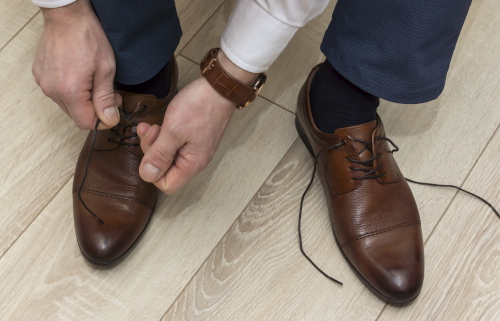Reliable sources of information about How To Know If A Shoe Is Too Big, all presented in this article for you.

How to Know if a Shoe Is Too Big
Selecting the right shoe size is crucial for comfort and foot health. However, determining the perfect fit can be challenging. To help you make an informed decision, this comprehensive guide explores the symptoms and consequences of wearing shoes that are too big.
Signs Your Shoes Are Too Big
Several telltale signs indicate that your shoes are too spacious. Observe these key symptoms:
- Heel slippage: Your heel should fit snugly in the shoe without excessive movement. If your heel slides out while walking, the shoe is likely too big.
- Shoe wobbling: Your feet should feel secure and stable within the shoe. Constant wobbling suggests that the shoe is too wide or long.
- Toe space: While some toe movement is desirable, excessive space in the toe area can cause discomfort and make it difficult to walk comfortably.
- Loose laces: Even when laces are fully tightened, your feet should not slide within the shoe. Loose laces signal that the shoe is too roomy.
- Blistering or rubbing: Shoes that are too big can cause friction and pressure on the skin, leading to blisters or chafing.
Consequences of Wearing Shoes That Are Too Big
Wearing shoes that are too big can have several detrimental effects on foot health:
- Blisters and calluses: Excessive movement within the shoe can cause friction against the skin, leading to painful blisters and calluses.
- Metatarsalgia: Over-spacious shoes can put strain on the metatarsals (bones at the ball of the foot), causing pain and inflammation.
- Ankle sprains: Wobbly shoes compromise ankle support, increasing the risk of twisting or spraining the ankle.
- Knee and back pain: Inappropriate footwear can alter body mechanics, leading to pain in the knees and back.
- Hammertoes: Too-large shoes can allow the toes to curl and overlap, potentially leading to hammertoes.
Tips for Finding the Right Shoe Size
To ensure a comfortable and supportive fit, follow these expert tips:
- Measure your feet regularly: Feet can change size and shape over time, so it’s important to measure your feet regularly.
- Know your size across different brands: Sizing can vary between brands, so try on shoes from different manufacturers to find your ideal fit.
- Wear the socks you plan to wear with the shoes: Socks can affect shoe fit, so wear the type of socks you typically wear when trying on shoes.
- Walk around the store: Don’t just stand in the shoes. Walk around to ensure there is no heel slippage or excessive movement.
- Consult a foot specialist: If you have any foot problems or concerns, consult a podiatrist for expert advice on proper shoe fit.
FAQ About Shoe Size
Here are answers to some frequently asked questions about shoe size:
- Q: What is the best way to measure my feet?
A: Stand with your feet flat on the floor. Place a piece of paper against the wall and position your heel against it. Mark the longest part of your foot and measure the distance from the wall to the mark.
- Q: I’m between sizes. Which size should I choose?
A: It’s generally better to choose the smaller size. Shoes that are slightly too tight can be stretched, while shoes that are too big cannot be made smaller.
- Q: Can wearing too-big shoes cause long-term damage?
A: Yes, wearing shoes that are too big can lead to chronic foot pain, deformities, and other health issues.
Conclusion
Properly sized shoes are essential for foot health and comfort. By understanding the signs of shoes that are too big, you can avoid potential problems and ensure a comfortable and supportive walking experience. Remember to follow the tips and expert advice provided in this article to make informed shoe purchases and maintain healthy feet.
Are you interested in learning more about foot health and shoe fitting? If so, explore our other articles and resources for valuable insights and tips.
Image: no74-berlin.com
You have read How To Know If A Shoe Is Too Big on our site. Thank you for your visit, and we hope this article is beneficial for you.